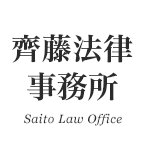Best Defamation Lawyers in Tokyo
Share your needs with us, get contacted by law firms.
Free. Takes 2 min.
List of the best lawyers in Tokyo, Japan
About Defamation Law in Tokyo, Japan
Defamation in Tokyo, Japan, involves making false statements about someone else that causes harm to their reputation. Japan’s defamation laws are designed to balance the protection of individuals' reputations with the freedom of expression. Both civil and criminal courts can address defamation cases, and consequences can range from fines to imprisonment. Unlike some countries, Japan values honor and reputation highly, making defamation laws particularly stringent.
Why You May Need a Lawyer
Legal help in defamation cases is often necessary due to the complexity of proving or disproving such claims. Common situations requiring a lawyer include being accused of defamation, wanting to remove defamatory content online, or seeking damages for harm caused by false statements. Lawyers can navigate the intricate legal landscape, manage court submissions, and provide crucial advice on the likelihood of success and possible damages or defenses.
Local Laws Overview
Key aspects of Tokyo's defamation laws include distinguishing between slander (spoken defamation) and libel (written defamation), with penalties potentially more severe for libel. Defamation is a criminal offense under the Penal Code of Japan, and a person can be imprisoned for up to 3 years or fined. However, for a statement to be considered defamatory, it must be proven false, communicated to a third party, and demonstrated to harm the reputation of the person. There also exists the concept of "qualified privileged statement," where some statements are protected under specific conditions, even if they are defamatory.
Frequently Asked Questions
What constitutes defamation in Japan?
Defamation in Japan involves spreading false information that damages someone's reputation. It must be communicated to others, be false, and result in damage to the victim's reputation.
Can I be sued for something I say online?
Yes, online statements can lead to defamation lawsuits in Japan. Online defamation is taken seriously, and removing content or compensating the victim is often required.
What are the penalties for defamation?
Penalties can include fines or imprisonment for up to 3 years. Civil suits can also result in the payment of damages to the victim.
Is truth a defense against defamation?
Yes, if a statement can be proven true, it is typically not considered defamatory. However, proving truth can sometimes be challenging.
Can opinions be considered defamatory?
Opinions that do not state facts and are clearly identifiable as personal views are generally not considered defamation. However, the context and presentation can affect this determination.
What should I do if I am accused of defamation?
Seek legal advice immediately. Navigating defamation laws can be complex, and a lawyer can help protect your rights and formulate a defense.
How is online defamation handled?
Online defamation is treated seriously, and legal actions can involve demanding the removal of content and compensation for damages. Internet service providers may also be involved in resolving these cases.
Can public figures sue for defamation?
Public figures can sue for defamation but they must also prove that the statement was made with malice or reckless disregard for the truth.
Are there any defamation protections for journalists?
Journalists have some protections when reporting in the public interest, but they must be cautious to avoid spreading unfounded information.
How long do I have to file a defamation lawsuit?
The statute of limitations for filing a defamation claim in Japan is typically three years from when the defamatory statement was made.
Additional Resources
For further assistance, consider contacting the Japan Federation of Bar Associations, local legal aid services in Tokyo, or the Ministry of Justice. These organizations can provide referrals to lawyers experienced in defamation law, offer legal advice, or explain more about the process and your rights.
Next Steps
If you believe you need legal assistance with a defamation case, the first step is to consult with a lawyer experienced in defamation law. They can assess your case, advise on possible outcomes, and guide you through the legal process. Collecting any evidence related to the defamation, such as online messages, emails, or witness statements, can also be helpful for your case.
Lawzana helps you find the best lawyers and law firms in Tokyo through a curated and pre-screened list of qualified legal professionals. Our platform offers rankings and detailed profiles of attorneys and law firms, allowing you to compare based on practice areas, including Defamation, experience, and client feedback.
Each profile includes a description of the firm's areas of practice, client reviews, team members and partners, year of establishment, spoken languages, office locations, contact information, social media presence, and any published articles or resources. Most firms on our platform speak English and are experienced in both local and international legal matters.
Get a quote from top-rated law firms in Tokyo, Japan — quickly, securely, and without unnecessary hassle.
Disclaimer:
The information provided on this page is for general informational purposes only and does not constitute legal advice. While we strive to ensure the accuracy and relevance of the content, legal information may change over time, and interpretations of the law can vary. You should always consult with a qualified legal professional for advice specific to your situation.
We disclaim all liability for actions taken or not taken based on the content of this page. If you believe any information is incorrect or outdated, please contact us, and we will review and update it where appropriate.












